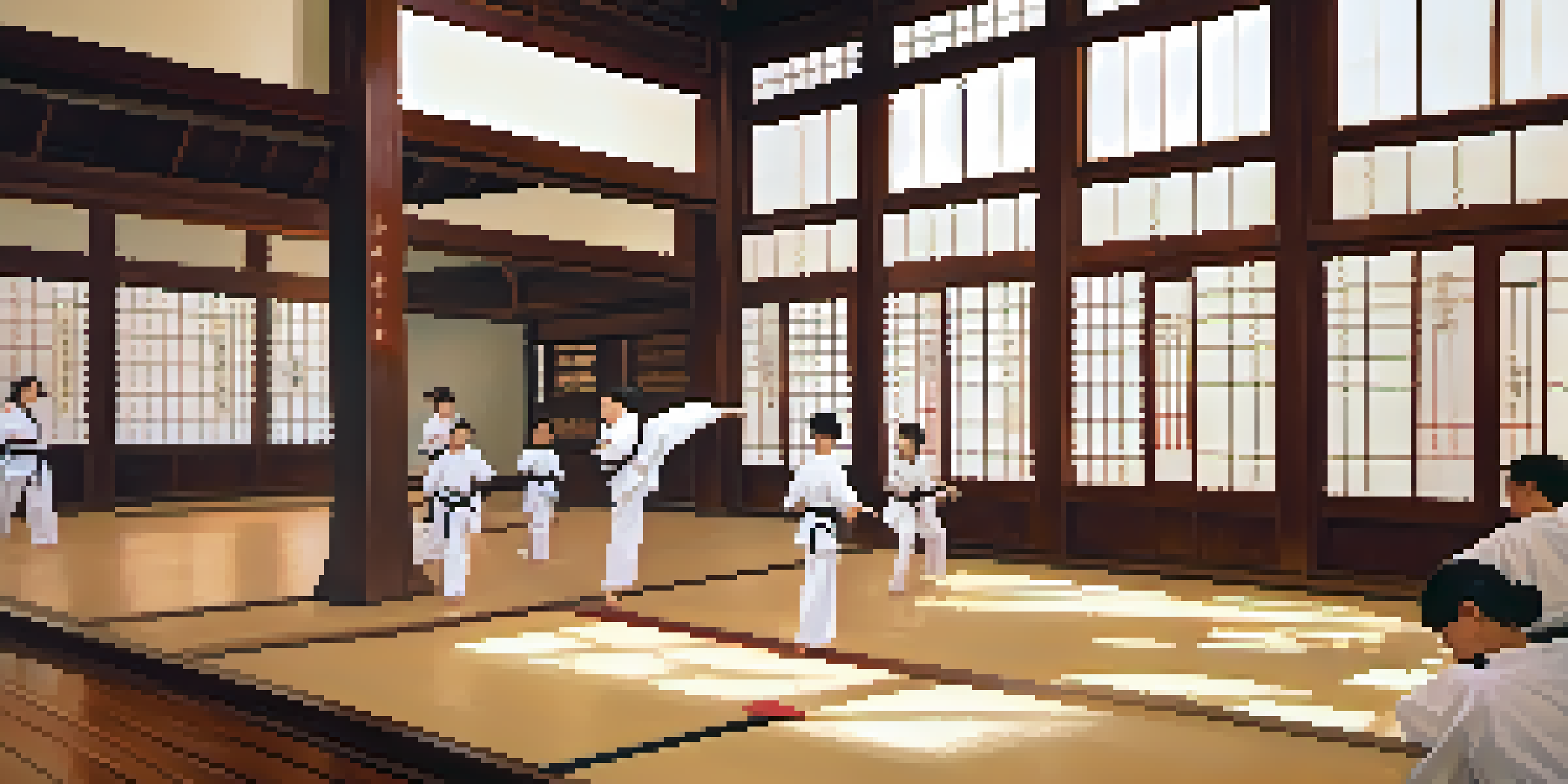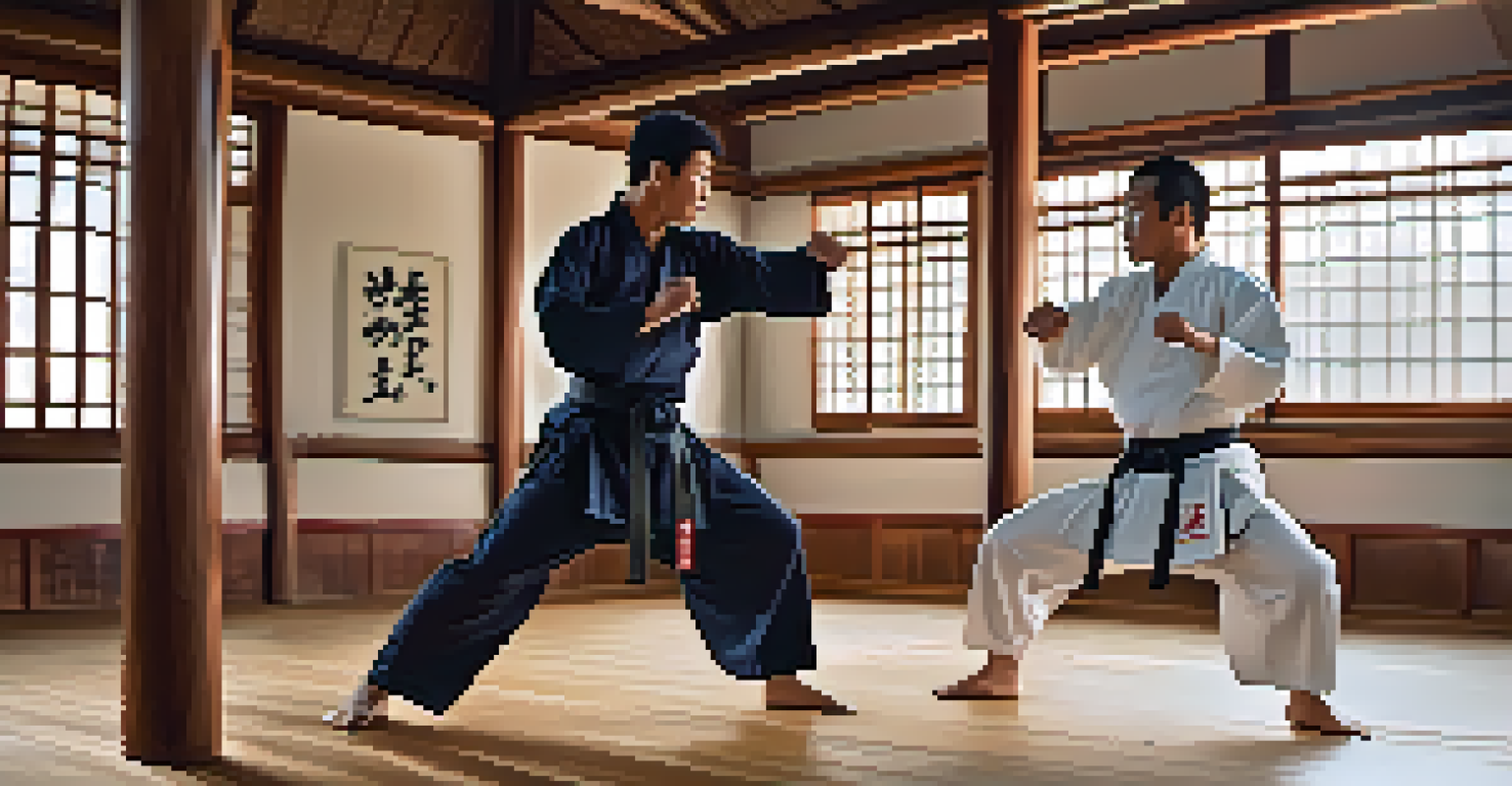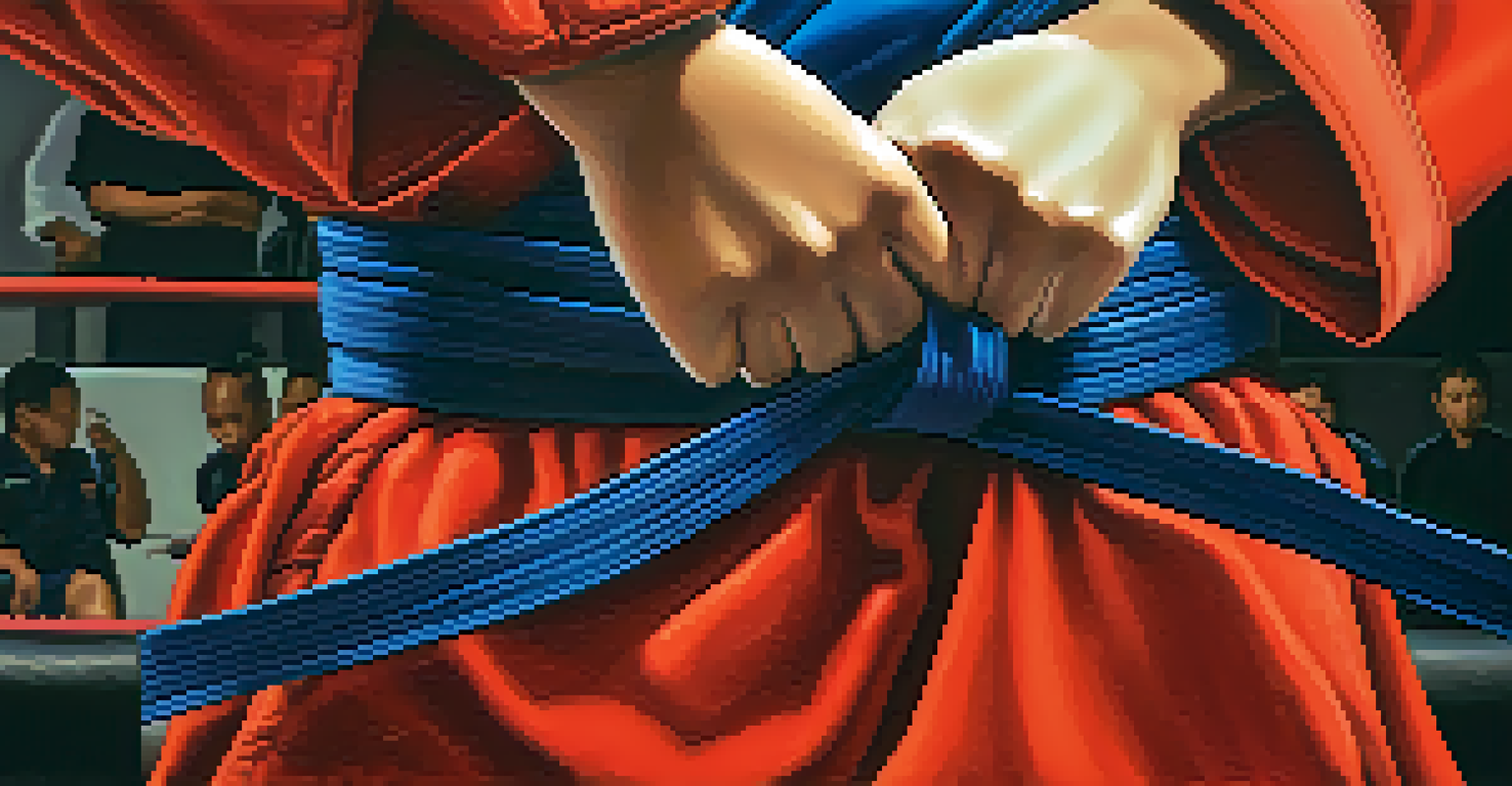Discipline in Action: Martial Arts Teach Respect and Resilience

Understanding the Core Values of Martial Arts
At the heart of martial arts lies a set of core values that practitioners are encouraged to embody. Respect is paramount, not just for instructors and peers but also for oneself. This foundational principle sets the tone for how skills are taught and learned, creating an environment where everyone feels valued.
The ultimate aim of martial arts is not having to use them.
In addition to respect, resilience is another key value taught through martial arts. Students learn to face challenges, whether in the dojo or in life, with determination and perseverance. This dual focus on respect and resilience helps to mold individuals who can navigate various situations with confidence.
The integration of these values into training routines serves as a constant reminder of their importance. Through drills, sparring, and forms, students are not just practicing physical skills but also internalizing lessons that extend far beyond the mat.
The Role of Discipline in Martial Arts Training
Discipline is the backbone of martial arts training, guiding practitioners to stay focused and committed. It requires a regular practice schedule, which teaches students the importance of consistency in achieving their goals. This discipline fosters a sense of responsibility, not only to oneself but also to fellow students.

As students progress, they encounter obstacles that test their resolve. The discipline instilled through martial arts training encourages them to push through these challenges rather than give up. This process of overcoming difficulties builds resilience, shaping individuals who are more equipped to handle life's hurdles.
Core Values Shape Character
Martial arts instills essential values like respect and resilience, which help practitioners grow into confident and compassionate individuals.
Moreover, the structured environment of martial arts classes reinforces the practice of discipline. Each lesson and technique is meticulously designed to develop both physical abilities and mental fortitude, ensuring practitioners are well-rounded individuals.
Respecting Instructors and Peers
One of the first lessons in martial arts is learning to respect instructors and fellow students. This respect is demonstrated through simple actions, like bowing before entering the dojo or listening attentively during lessons. These rituals set a tone of humility and acknowledgment of the knowledge being shared.
Discipline is the bridge between goals and accomplishment.
Respect also extends to the practice of sportsmanship during sparring sessions. When engaging in practice fights, students learn to honor their opponents, recognizing that everyone is on their own journey. This sense of camaraderie fosters a supportive community that encourages growth and improvement.
By cultivating an atmosphere of respect, martial arts schools not only teach technical skills but also nurture important social values. This respect translates into real-world relationships, helping individuals build connections founded on mutual understanding and appreciation.
Building Resilience Through Challenges
Martial arts training is rife with challenges that push students to their limits, both physically and mentally. Whether it's mastering a difficult technique or facing a tough opponent, these experiences teach participants how to manage adversity. Each challenge faced in the dojo mirrors the obstacles one might encounter in everyday life.
Learning to accept failure is a huge part of building resilience. In martial arts, falling down is part of the process, but getting back up is what truly counts. This lesson in perseverance helps students to view setbacks as opportunities for growth rather than insurmountable barriers.
Discipline Fuels Progress
The discipline learned through consistent training not only enhances martial arts skills but also fosters responsibility and commitment in other life areas.
As students face and conquer challenges, they develop a stronger sense of self. This newfound resilience empowers them to tackle difficult situations outside of martial arts, whether in school, work, or personal relationships, enabling them to respond positively to life's unpredictability.
The Importance of Goal Setting
Setting goals is a fundamental aspect of martial arts training that reinforces both respect and resilience. Instructors guide students to establish clear, achievable objectives, whether it's earning a new belt or mastering a specific technique. This goal-oriented approach promotes discipline and motivation, encouraging students to strive for continuous improvement.
As students work towards their goals, they learn valuable lessons in patience and persistence. Achieving a goal in martial arts often takes time, requiring sustained effort and dedication. This gradual progression teaches individuals that success is a journey, not a destination, and that resilience is key to overcoming obstacles along the way.
Moreover, celebrating milestones creates a sense of accomplishment that builds confidence. Each achievement, no matter how small, reinforces the importance of respect for the process and for oneself, further embedding these values into the fabric of a practitioner’s character.
Mindfulness and Mental Focus in Training
Martial arts training requires a high level of mental focus, which can be developed through mindfulness practices integrated into classes. Students are encouraged to be present in the moment, fully engaging with their training rather than letting distractions take over. This focus sharpens their skills while fostering a deeper understanding of movements and techniques.
Mindfulness also plays a crucial role in managing emotions during intense training sessions. When faced with pressure, students learn to remain calm and composed, which is essential for effective performance. This ability to maintain mental clarity contributes to their overall resilience, making them better equipped to handle stress in various aspects of life.
Mindfulness Enhances Training
Incorporating mindfulness into martial arts practice sharpens focus and emotional management, equipping students to better handle stress both on and off the mat.
As students cultivate mindfulness, they also develop a greater appreciation for their training and the journey they are on. This enriched perspective not only enhances their martial arts experience but also promotes a lasting sense of respect for themselves and others.
Conclusion: The Lasting Impact of Martial Arts
The lessons learned through martial arts extend far beyond the dojo, leaving a lasting impact on practitioners' lives. The combination of respect and resilience shapes individuals who are not only skilled martial artists but also compassionate and capable human beings. These attributes influence how they engage with the world around them.
As students progress, they become role models for others, showcasing the power of discipline, respect, and resilience. Their journey inspires those around them, fostering a culture of mutual support and encouragement within the martial arts community and beyond.

In essence, martial arts is not just about physical prowess; it's about personal growth and character development. By embracing these values, practitioners are better prepared to face life's challenges with grace, ultimately creating a more respectful and resilient society.